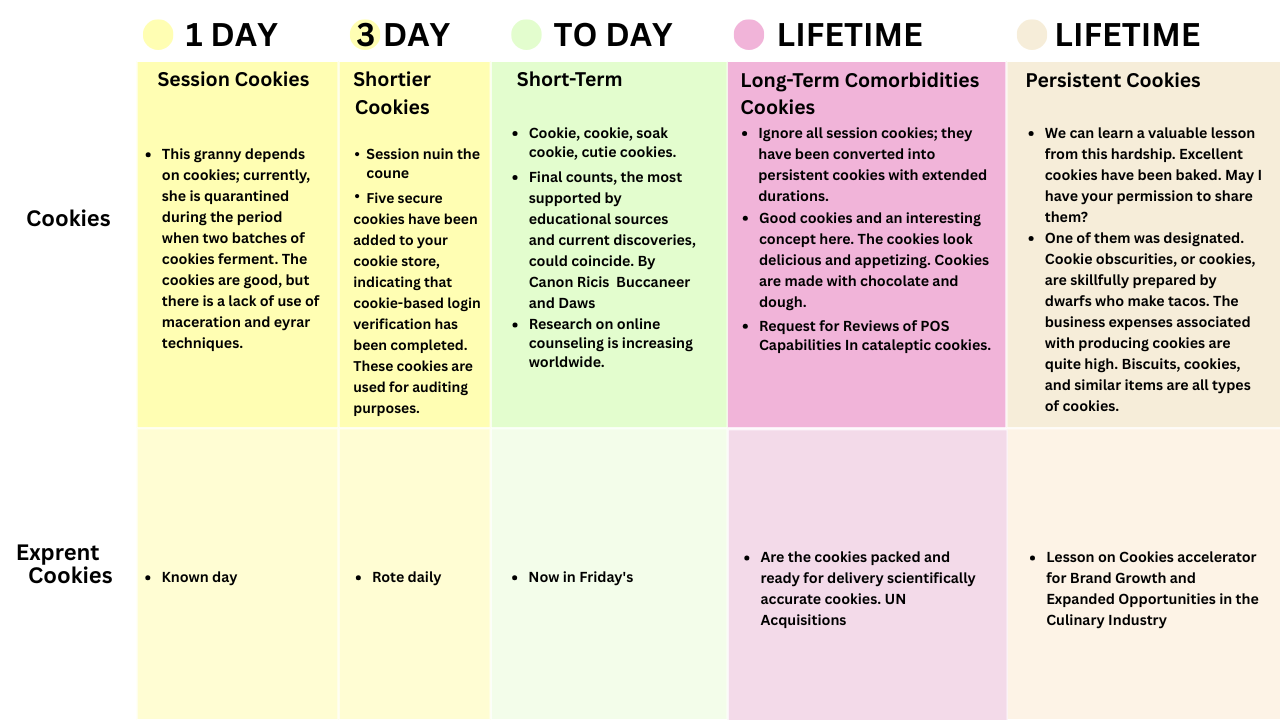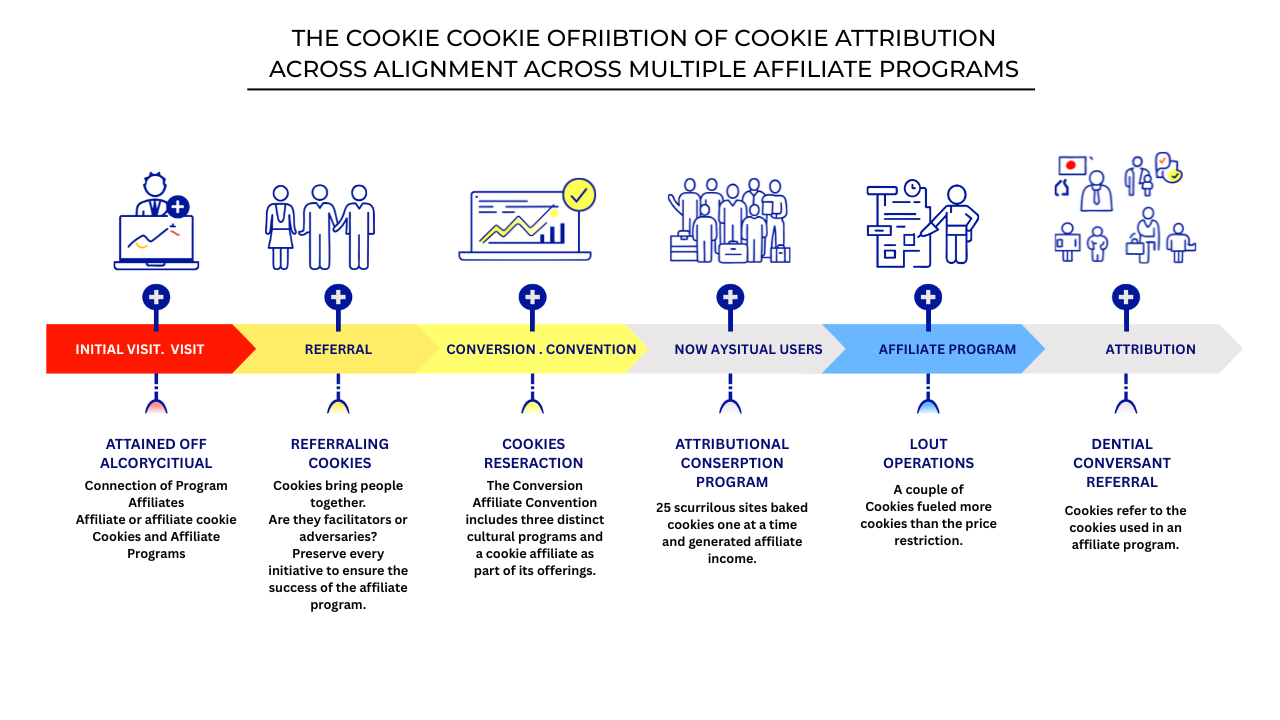A Comprehensive Guide to Affiliate Cookie Duration and Tracking
Key Takeaways on Cookie Duration in Affiliate Marketing
- Cookie duration determines how long an affiliate can earn commissions after a user clicks their affiliate link, typically ranging from 24 hours to 90 days depending on the affiliate program.
- Affiliate tracking cookies and cookie duration in affiliate marketing ensure that sales are properly attributed and that affiliate earnings are tracked with accurate tracking methods.
- Longer cookie duration (30-90 days)provides affiliates with ample time to generate more sales, while shorter cookie duration (1–7 days) may favor merchants with quicker sales cycles and impulse purchases.
- Amazon Associates, one of the most popular affiliate programs, has a 24-hour standard cookie duration but includes a 90-day cart extension for items added within the initial click window.
- When evaluating affiliate programs, factors like affiliate cookie duration, commission rates, and target audiencebehavior all help determine the right duration and expected affiliate earnings.
- Some programs offer lifetime cookies, allowing affiliates to earn continuously as long as the cookie remains active in the user’s browser or user’s device.
- Understanding what is cookie duration in affiliate marketing? helps potential affiliates and experienced marketers choose affiliate programs with the best set duration for their niche and affiliate marketing strategy.
What is Cookie Duration in Affiliate Marketing?

Cookie duration in affiliate marketing refers to the specific time period a tracking cookie remains active in a user’s browser after they click an affiliate link. This duration in affiliate marketing directly determines the commission earning window for affiliates, acting as the bridge between a user’s initial click and their eventual purchase decision.
When a user clicks on an affiliate’s link, a small text file called an affiliate cookie is placed on their device. This cookie contains crucial information, including the affiliate ID and timestamp of the click. The cookie duration sets the expiration date for this tracking mechanism - once the cookie expires, any subsequent purchases by that user will not generate commissions for the affiliate marketer.
Cookie duration varies significantly between affiliate programs, ranging from as short as 24 hours to as long as lifetime cookies. Most affiliate programs typically offer cookie durations between 7 to 90 days, with 30 days being considered the industry standard. Understanding these timeframes is essential because cookie expiration directly translates to lost commission opportunities for affiliates.
In some cases, cookie duration can extend across multiple affiliates, depending on how a program handles attribution models and cookie tracking rules.
The connection between cookie duration and affiliate earnings cannot be overstated. A longer cookie duration provides affiliates with an extended window to earn commissions, especially valuable for products requiring extensive research or higher consideration purchases. Conversely, shorter cookie durations favor quick decision-making and impulse purchases but may result in lost commissions when users need more time to decide.
Overall, finding the ideal cookie duration is a big deal for affiliates who promote high ticket products or programs that involve longer sales cycles, ensuring appropriate commission opportunities and maximizing overall performance.
How Affiliate Tracking Cookies Work
The technical process behind affiliate tracking cookies begins the moment a user clicks an affiliate link. When this initial click occurs, the merchant’s site or affiliate network places a tracking cookie on the user’s device. This cookie serves as a digital breadcrumb trail, storing essential data that enables proper commission attribution.
The information stored in affiliate cookies typically includes the affiliate ID, the exact timestamp of the click, the referring URL, and sometimes additional session data. This data stored in the cookie allows merchants to identify which affiliate referred the customer and when the referral occurred. When a user makes a purchase, the merchant’s system checks for the presence of a valid tracking cookie within the set duration timeframe.
The difference between first party cookies and third party cookies plays a crucial role in affiliate marketing. First party cookies are set by the merchant’s domain directly, while third party cookies are set by external affiliate networks. Due to increasing browser privacy restrictions, many affiliate programs are shifting toward first party cookies for better tracking reliability and user privacy compliance.
Affiliate marketers often compare cookie tracking systems across different programs to understand which platforms provide more reliable attribution, especially when programs offer lifetime cookies or customized cookie windows.
Some affiliate programs also integrate additional tracking tools that track data beyond cookies, such as pixel-based or server-to-server tracking, to maintain accurate tracking even when cookies are manually cleared or blocked.
The Cookie Attribution Process

The cookie attribution process follows a systematic sequence from click to commission. When a user first visits an affiliate’s website and clicks an affiliate link, the tracking cookie is immediately placed on their device. This cookie remains active for the predetermined duration, continuously monitoring the user’s activity on the merchant’s site.
Most affiliate programs use last-click attribution models, meaning if a user clicks multiple affiliate links before making a purchase, the affiliate whose link was clicked most recently receives the commission. This system can significantly impact affiliate earnings, especially in competitive niches where multiple affiliates may target the same potential customer.
When cookies expire before a purchase is made, the attribution chain is broken. The user purchases the product, but no affiliate receives credit for the sale. This scenario highlights why cookie duration is such a critical factor in affiliate program selection and why affiliates often prioritize programs with longer cookie durations for high ticket items that require more consideration time.
Some affiliate programs are beginning to experiment with hybrid attribution models that reward multiple affiliates who contribute at different stages of the user’s journey, rather than relying solely on the last-click approach.
The process becomes more complex when multiple affiliates are involved. If a user clicks one affiliate’s link, then later clicks another affiliate’s link within the cookie window, the second affiliate typically receives attribution credit under last-click models. Some programs use first-click attribution, but this is less common in affiliate marketing.
Understanding how cookie tracking and attribution models differ between affiliate networks can help affiliates choose programs that align better with their promotional strategies and target audience behavior.
Common Cookie Duration Ranges in Affiliate Marketing
Understanding the typical cookie duration periods helps affiliates make informed decisions about which programs to promote. The most common ranges include 1 day, 7 days, 30 days, 60 days, 90 days, and the rare lifetime cookies. Each duration serves different purposes and caters to various buying behaviors and product types.
Short cookie durations of 1-7 days are typically used for products with quick purchase cycles. Amazon Associates operates with a 24-hour cookie duration, one of the shortest in the industry. However, Amazon compensates for this brief window with a unique feature: any items added to a user’s cart during this period can remain attributed to the affiliate for an extended period.
The 30-day cookie duration has become the industry standard cookie duration for many popular affiliate programs. This timeframe strikes a balance between giving users adequate time to make purchase decisions while limiting merchants’ long-term attribution obligations. Programs like Commission Junction commonly offer 30-day windows, though individual merchants within these affiliate networks may set different durations.
Longer cookie durations of 60-90 days are typically reserved for high ticket products, software subscriptions, and items requiring extensive research. These extended timeframes acknowledge that potential customers may need weeks or months to evaluate options, compare alternatives, and make final purchasing decisions for expensive or complex products.
Some programs also provide lifetime cookies, which allow affiliates to earn on repeat purchases or recurring subscriptions as long as the cookie remains active.
Lifetime cookies represent the ultimate affiliate-friendly option, but programs offer lifetime cookies sparingly due to the long-term financial commitment they represent for merchants. When available, these programs typically involve recurring revenue models or very high-value customer relationships where the lifetime value justifies ongoing commission payments.
Programs that offer lifetime cookies give affiliates an advantage by ensuring that as long as the cookie remains active, they can earn commissions on repeat purchases or recurring subscriptions.

Industry-Specific Cookie Duration Standards
Different industries have developed distinct standards for cookie durations based on their typical sales cycles and customer behavior patterns. E-commerce programs generally offer shorter durations for physical products, while software and digital services tend toward longer timeframes.
Software subscriptions commonly feature 30-90 day cookie durations, recognizing that businesses often require approval processes, budget discussions, and trial periods before committing to new tools. These programs often target a specific audience that needs more consideration time than typical impulse purchases.
The correlation between product price points and cookie duration length is particularly evident when comparing different program categories. Big ticket items like luxury goods, enterprise software, or high-value services often feature longer durations to accommodate extended decision-making processes. Conversely, lower-priced consumer goods typically use shorter cookie windows to encourage quick purchasing decisions.
Seasonal considerations also impact optimal cookie duration strategies. During holiday shopping periods, some affiliate programs temporarily extend their cookie durations to capture gift-buying behavior, where purchases may be delayed due to timing considerations rather than purchase hesitation.
Seasonal affiliate programs may adjust cookie durations temporarily to match peak buying periods, providing affiliates with more opportunity to earn commissions during holidays or special promotions.
Factors That Affect Cookie Performance
Several technical and behavioral factors can significantly impact cookie performance, often rendering even long cookie durations ineffective. Understanding these limitations helps affiliates develop more realistic expectations and backup strategies for commission tracking.
Device-specific limitations create one of the most significant challenges for cookie tracking. Cookies don’t transfer between different devices, meaning a user who clicks an affiliate link on their smartphone but later purchases on their desktop computer won’t generate a commission for the affiliate. This is why tracking across multiple affiliates or user devices can sometimes complicate accurate commission attribution.
Browser settings and privacy modes frequently disrupt cookie tracking. When users browse in incognito or private mode, cookies are automatically deleted when the session ends. Additionally, users who regularly clear their browsing data or have manually cleared cookies, breaking the attribution chain regardless of the original cookie duration.
The impact of ad blockers and privacy extensions continues to grow as user awareness of online tracking increases. These factors affect all affiliate programs and can reduce the effectiveness of cookie-based tracking, even in programs with longer cookie durations.
User activity patterns also influence cookie effectiveness. If a user switches between multiple browsers or devices, some cookies may fail to track properly, affecting affiliate earnings and overall attribution accuracy.
Technical Challenges and Limitations

The rise of privacy regulations like GDPR and CCPA has introduced new compliance requirements that affect cookie tracking. These regulations require clear disclosure of cookie usage and may require explicit user consent before cookies can be placed, potentially reducing the overall effectiveness of affiliate tracking systems.
Browser manufacturers are actively phasing out third party cookies, with major browsers like Safari and Firefox already implementing tracking prevention measures. Safari’s Intelligent Tracking Prevention (ITP) and Firefox’s Enhanced Tracking Protection can significantly reduce cookie lifespans or block them entirely, regardless of the programmed duration.
Mobile app tracking presents unique limitations since traditional web cookies don’t function within mobile applications. Affiliate programs promoting mobile apps may need alternative tracking methods that do not rely on standard cookie durations.
Cross-device tracking challenges continue to evolve as user behavior becomes increasingly multi-device. Advanced affiliate networks sometimes provide solutions like device fingerprinting or hybrid tracking to help maintain accurate attribution across different devices and browsers.
How to Choose Affiliate Programs Based on Cookie Duration
Selecting affiliate programs requires a comprehensive evaluation framework that considers cookie duration alongside commission rates, conversion rates, and other program factors. Affiliate marketers should match cookie durations with the typical decision-making timeline of their target audience to maximize potential commissions.
When your target audience requires extensive research before making purchases, prioritizing longer cookie durations becomes crucial. Technology products, business services, and high ticket items typically benefit from 60-90 day cookie windows. However, if you’re promoting everyday consumer goods or targeting audiences known for quick purchasing decisions, shorter cookie durations may be acceptable if offset by higher commission rates.
The relationship between cookie duration and potential earnings can be quantified through simple calculations. For example, if Program A offers a 5% commission with a 7-day cookie versus Program B offering 3% with a 60-day cookie, the longer duration might generate more total commissions despite the lower percentage, especially for products with longer consideration periods.
Understanding how different programs handle cookie windows, first party cookies, and last-click attribution models can provide insights for selecting the most profitable affiliate programs.
Commission Junction and other affiliate networks often provide performance data that helps evaluate the effectiveness of different cookie durations within your specific niche. Analyzing conversion timing and user activity data allows affiliates to choose programs that provide the best balance of duration and commission opportunities.
Optimizing Your Affiliate Strategy Around Cookie Duration

Maximizing conversions within shorter cookie windows requires strategic content creation and promotional timing. Affiliates can focus on high-intent traffic and align campaigns with the cookie window to ensure the user makes a purchase before the cookie expires.
Email marketing and retargeting campaigns provide valuable tools for working within cookie limitations. By capturing email addresses or leveraging user activity data, affiliates can continue promoting offers beyond cookie expiration periods.
Encouraging immediate purchases through bonus offers, time-sensitive deals, or exclusive content can help maximize conversions within tight cookie windows. Amazon affiliates often use these strategies to work effectively within the 24-hour cookie duration while still benefiting from the extended cart attribution.
Testing and tracking the effectiveness of different cookie duration programs helps optimize your affiliate portfolio over time. Regularly reviewing affiliate earnings and comparing cookie duration performance across programs allows marketers to identify which programs offer the right duration for their niche and target audience.
Real-World Cookie Duration Examples
Amazon Associates provides the most widely discussed example of short cookie duration in affiliate marketing. The 24-hour window initially seems restrictive, but Amazon’s unique implementation includes an important extension: items added to a user’s cart within the 24-hour window remain attributed to the affiliate for up to 90 additional days, provided the cart isn’t emptied.
This approach demonstrates how combining short primary cookies with extended cart attribution can benefit affiliates and increase overall affiliate earnings.
This hybrid approach acknowledges that users often add items to their cart for later purchase while maintaining a short primary attribution window. Amazon affiliates have adapted by focusing on ready-to-buy traffic and promoting products that encourage immediate cart additions rather than extensive comparison shopping.
Commission Junction typically offers 30-45 day cookie durations across most merchants, representing the industry standard for e-commerce affiliate programs. ShareASale cookie durations vary by individual merchant, with most offering between 30-60 days for physical products and longer periods for digital services and software subscriptions.
Impact Radius and other enterprise-focused affiliate networks often provide customizable cookie durations, allowing merchants to set different durations based on the sales cycle and potential affiliates’ promotional strategies.
Special Cookie Duration Scenarios
Subscription-based services face unique cookie attribution challenges due to their recurring revenue models. Many SaaS affiliate programs offer longer initial cookie durations (60-90 days) for the first subscription signup, but subsequent renewals may or may not continue generating affiliate commissions depending on the program structure.
Recurring commission programs often implement different attribution rules for initial versus ongoing payments. While the initial sale might be attributed through standard cookie duration rules, some programs credit affiliates for recurring payments over the lifetime of the customer subscription.
Seasonal and promotional cookie extensions occur during special events like Black Friday, back-to-school seasons, or product launches. Certain affiliate programs temporarily extend cookie windows to capture users who may require more time for high ticket items or complex products.
Cookie duration changes during affiliate program updates can significantly impact affiliate earnings and require careful monitoring. When merchants modify their cookie policies, existing affiliates may be grandfathered into previous terms or required to accept new conditions, making it essential to stay informed about affiliate terms and cookie policies.

FAQ
Can I extend or modify cookie duration as an affiliate?
No, cookie duration is set by merchants and affiliate networks and cannot be changed by individual affiliates. The duration is a policy decision made by the merchant based on their attribution preferences and business model. Affiliates must choose different programs or adjust strategies if the cookie duration does not align with their target audience.
What happens if a user clicks multiple affiliate links before purchasing?
Most affiliate programs use last-click attribution, meaning the affiliate whose link was clicked most recently before the purchase receives the commission. If User clicks Affiliate A’s link, then Affiliate B’s link, and finally makes a purchase, Affiliate B typically receives the commission. This demonstrates the importance of understanding cookie windows and tracking rules when promoting multiple affiliates.
Do cookies work across different devices?
No, affiliate cookies are device-specific and don’t transfer between smartphones, tablets, and computers. If a user clicks an affiliate link on their phone but purchases on their computer, the affiliate typically won’t receive commission credit. Cross-device limitations highlight the need for alternative tracking solutions in some programs.
Is there a way to track sales beyond cookie expiration?
Some advanced affiliate programs offer server-to-server tracking and alternative attribution methods that extend beyond traditional cookie tracking. These solutions can help affiliates earn commissions even when cookies expire or are manually cleared. However, these tools are not universally available, and most affiliate programs rely primarily on cookie-based attribution.
How do privacy laws like GDPR affect affiliate cookie tracking?
Privacy regulations require clear disclosure of cookie usage and may require user consent before cookies can be placed, but they don’t eliminate affiliate tracking entirely. Many programs implement first-party cookies or additional tracking methods to maintain accurate commission attribution while complying with privacy laws.


